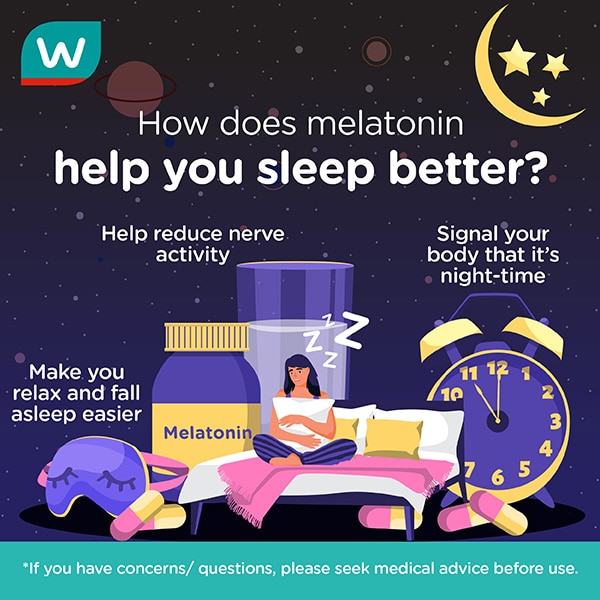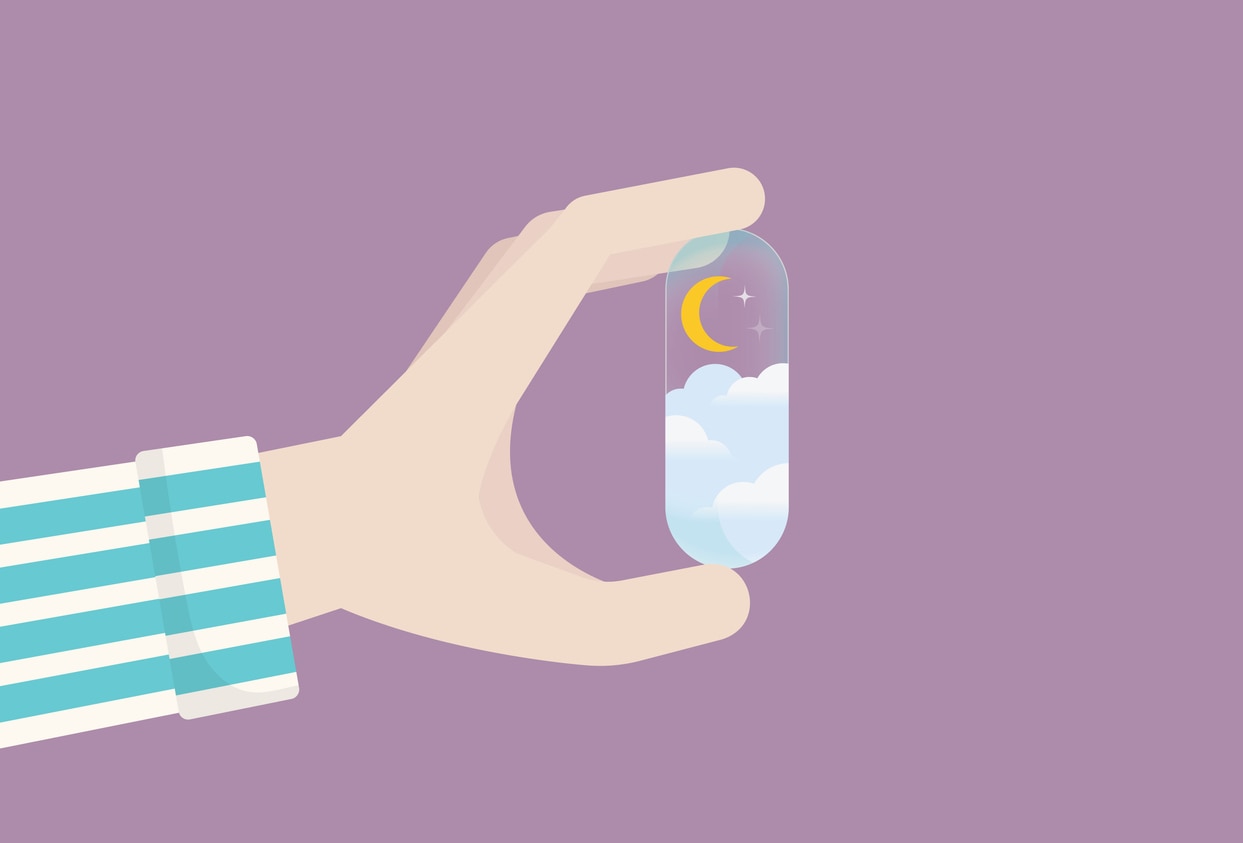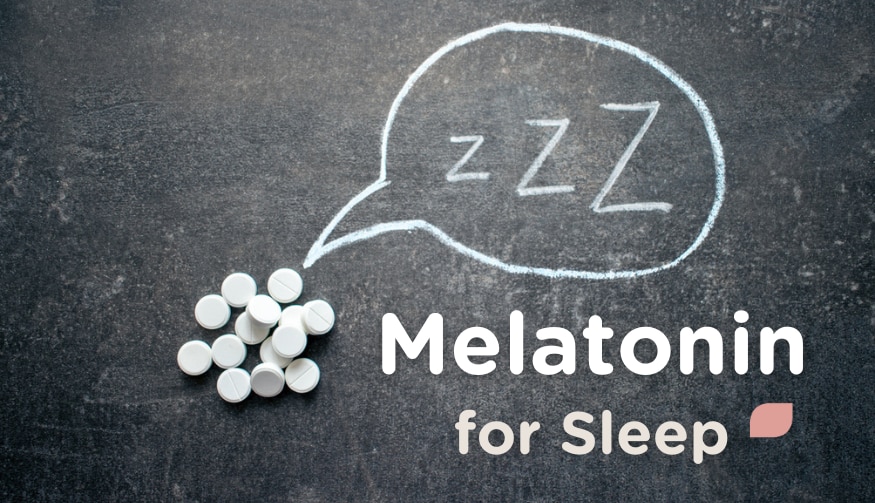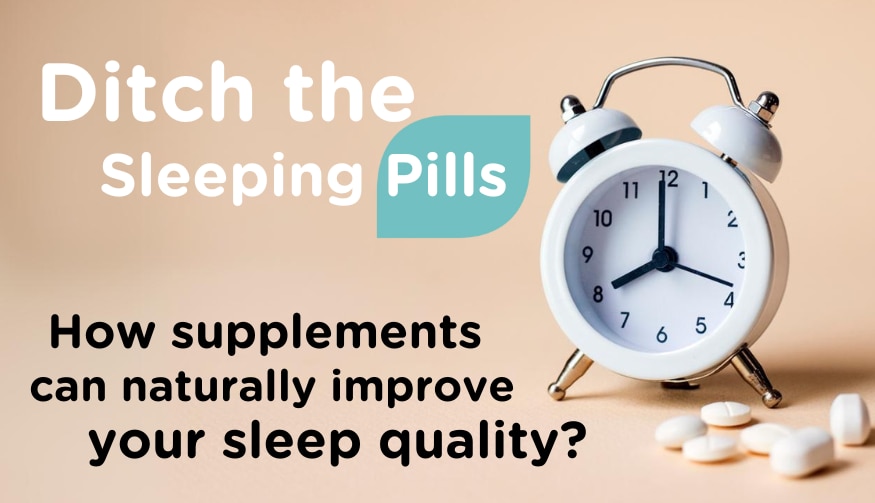Is restless sleep keeping you up at night? Did you know that nearly one-third of adults struggle with sleep? If you’re among them, melatonin might be the key to restful nights.
In this blog, we’ll delve into how melatonin works and explore supplements that can transform your sleep experience. Say goodbye to sleepless nights and hello to rejuvenating rest!
What is melatonin?
Melatonin is a hormone naturally produced by the pineal gland in our brain. When the sun sets in the evening, melatonin production levels begin to rise. This hormone binds to receptors in the brain, reducing nerve activity and decreasing levels of dopamine, which helps keep you awake. As the sun rises and your body is exposed to light, its production levels fall, signaling that it’s time to wake up.
In short, melatonin helps your body know when it’s nighttime, allowing you to relax and fall asleep more easily.
How do melatonin supplements help you to sleep better?

Melatonin is often called the “sleep hormone” because of its ability to help us fall asleep.
There are different types of melatonin supplements, including tablets, capsules, liquids, and chewables. These can be either natural (derived from the pineal glands of animals) or synthetic. The natural form of melatonin could be contaminated by viruses, so it’s suggested to take a synthetic type.
What side effects does it have?
Current studies show that melatonin is safe, non-toxic, and non-addictive; however, it may interact with certain medications, such as blood thinners, blood pressure medications, and antidepressants.
Potential side effects include:
- Daytime sleepiness
- Headache
- Dizziness
- Nausea
- A “heavy head” feeling
- Short-lived depression
* If you have concerns, especially if you are taking any medication or have a health condition, please seek medical advice before use.
How to use melatonin safely?
Taking too much melatonin may disturb your sleep-wake cycle and cause other side effects. While overdosing on melatonin is technically possible, there is no universal standard dosage since individual sensitivity varies.
For adults looking to try melatonin, it’s advisable to start with a low dose of 0.5 to 1 mg about 30 minutes before bedtime. If this doesn’t help you fall asleep, you can gradually increase the dosage to 3 mg to 5 mg while monitoring your response. The goal is to find the lowest effective dose.
Although the “optimal” dosage for melatonin is still being studied, it is believed that doses in the 30 mg range may be harmful.
It’s also best to follow the instructions provided with your supplement. Young children should avoid melatonin unless instructed by a doctor.
Watsons’ best supplements to help you sleep better

Before you rush out to buy any supplements, always talk to your doctor to ensure they are appropriate for your individual needs and to determine an appropriate dosage.
B Vitamins
Vital for brain function, energy levels, cell metabolism, and melatonin production, therefore, sufficient levels of Vitamins B3, B5, B6, B9, and B12 may help promote good sleep.
Vitamin D
Studies show that vitamin D deficiency is linked to a higher risk of sleep disorders. So, make sure you get enough sunlight to help your body produce Vitamin D, which is actually a hormone rather than a vitamin.
Vitamin E
Known to relieve hot flushes and night sweats in menopausal women and thus improve sleep quality.
Calcium
Ever got the advice to drink a glass of warm milk to help you sleep better? That is because dairy products contain calcium and tryptophan, both of which help your brain to produce melatonin, a hormone that promotes healthy sleep.
Magnesium
You might also consider getting some help from magnesium to release tension and muscles, which is essential to prepare your body for rest if it is suffering from sleeping disorder and insomnia.
Melatonin
Yes, as mentioned above, the pineal gland in our brain naturally produces this hormone and signals our body that it’s nighttime.
Iron
Iron helps transport oxygen throughout your body, which is why a deficiency can leave you feeling fatigued. Moreover, it’s linked to restless leg syndrome, a neurological disorder causing an overwhelming urge to move the legs when in bed and disrupting sleep. Iron deficiency is common, particularly among women.
Valerian root
Commonly used as a natural treatment for symptoms of anxiety, depression, and sleep issues, particularly in menopausal women. As a result of taking valerin, menopausal and postmenopausal women have seen their sleep quality and sleep disorder symptoms improve.













